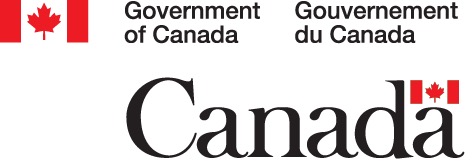
Online Streaming Bill will Harm Canadian Digital Creators, Warn YouTube and TikTok to Senators

Digital content powerhouses YouTube and TikTok told a Senate committee on Wednesday that the Liberal government’s proposed Online Streaming Act, also known as Bill C-11, does not protect Canadian creators in its current form (via CTV News).
TikTok executive Steve de Eyre told the committee that Bill C-11 not only fails to protect Canadian content creators from regulation but also puts them in harm’s way.
The Liberals proposed Bill C-11 in February as an amendment to the Broadcasting Act. It is designed to give the Canadian Radio-television Telecommunications Commission (CRTC) regulatory authority over online streaming platforms in hopes of getting them to promote and invest in Canadian content more.
However, the bill isn’t all that cut and dry. It has been met with opposition ever since it was tabled, especially over some of the language in the legislature casting doubt over whether the CRTC will have dominion over user-generated content.
During Wednesday’s hearing, de Eyre urged senators to take a closer look at the bill and more explicitly exclude user-generated content from it to better protect digital creators.
TikTok’s director of public policy and government affairs for Canada also suggested that the Senate expand the CRTC’s definition of “Canadian” content. Much of the content Canadians create on TikTok won’t qualify as such under the current rules, he said.
Creators would have to prove how Canadian they are, which could thrust “established media voices and cultural voices” with more resources to the front of the line, de Eyre added. Entertainment giant Disney made a similar request last week.
At the same hearing, YouTube’s head of government affairs and public policy, Jeanette Patell, said Bill C-11 gives the CRTC too much power to influence user-generated content.
Bill C-11 contains a provision allowing the CRTC to take into account whether someone has directly or indirectly generated revenue from their content, which Patell said would affect “effectively everything” on YouTube.
“This is a global precedent,” she said. Patell warned that if other countries demanded the same, Canadian creators’ discoverability would take a massive hit since approximately 90% of their views come from international audiences.
“There’s nothing like this in the world for open platforms. It really puts the international audiences of creators at risk.”
Patell went on to air concerns that the CRTC could require changes to YouTube’s algorithms, which would adversely affect the discoverability of Canadian creators’ content. CRTC chair Ian Scott even confirmed in June that Bill C-11 will allow the regulator to influence content streaming companies’ algorithms.
Senator @Karen_Banff asks whether the Bill C-11 discoverability rules will hurt Canadian creators in trying to reach global audiences. Youtube and TikTok confirm that it will create real harm and that no country in the world regulates user content this way. pic.twitter.com/scaXNnzZVP
— Michael Geist (@mgeist) September 21, 2022
Ottawa has repeatedly said that the Online Streaming Act is meant to benefit Canadian content creators. However, there are mounting fears that it will have the opposite effect. Many Canadian digital creators have also spoken out against Bill C-11, arguing the proposed law puts them at risk.
Bill C-11 is now making its way through the Senate after being passed by the House of Commons in June. If senators decide to amend the bill, it will have to go through the House once again before it can be passed into law.

